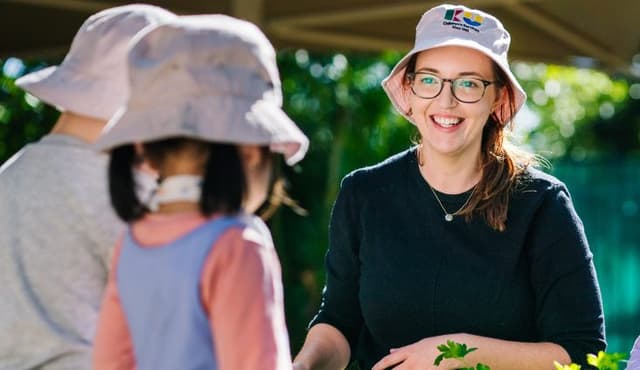Professional development
Play School to explore grief and loss in another landmark episode

Freya Lucas
Aug 12, 2019
Save
Early childhood education and care (ECEC) educators will often seek support from their professional community in relation to death, grief and loss. Such topics can be challenging for adults to process, and educators are often approached for advice from grieving family and friends, about how to support children to navigate these difficult times.
As with the recent ‘Acknowledgement of Country’ episode, Play School producers have recently created content for children which will also be of use to those working in the ECEC sector.The episode, known as Beginnings and Endings, will air on 19 August, exploring the joys and sorrows that come with the various stages of life — from buying a puppy to the death of a grandparent.
It's the first time in Play School's 53-year history that the show will explicitly talk about death and grief with its preschool-aged audience.Speaking with the ABC, Senior Producer of the episode Bryson Hall said the second standalone special of the year represented a new direction for the program, and is one of five specials planned for the year (the first of which was Acknowledgement of Country).
"It's been on the cards for a very long time, doing an episode like Beginnings and Endings. Play School has dealt with this stuff, but very indirectly, through stories. To be able to have a half-hour dedicated to [birth and death] meant it was a lot easier to explore the themes," Mr Hall told the Broadcaster.
During the program, two presenters share personal stories about the cycle of life, and managing grief and loss. Perennial Play School favourite toy, Little Ted, also navigates the death of his goldfish, Swish, supported by friends.
Mr Hall explained that the role of the friends was not to cheer Little Ted up, “because it’s ok to be sad. The friends are there to be supportive of him, and let him grieve if he wants to, let him cry and just chat.”
In producing the episode, ABC worked with a number of experts, including bereavement counsellor Elizabeth Mann, who is the clinical director of the National Centre for Childhood Grief.
Ms Mann told the ABC that while she understands the desire to protect children from the sad reality of the end stages of life, it is important for adults to model that grief is part of life’s experience.She advised that those caring for children speak openly and honestly, avoiding euphemisms and using clear language. In the days, weeks and months following a loss or change of circumstances, children may ask the same questions, or need the same information repeated, as a way of being reassured, and consolidating the facts.
Producer Laura Stone recommends that carers and educators "start from a place of shared truth, being led by the child as much as you can," asking the child what they know and understand to have happened, and building from there.
The episode is accompanied by a series of learning notes, which also give suggested talking points, book suggestions, and useful links for educators to explore these topics in an age appropriate way.
To read the original coverage of this story from the ABC, please see here.
Don’t miss a thing
Related Articles



















